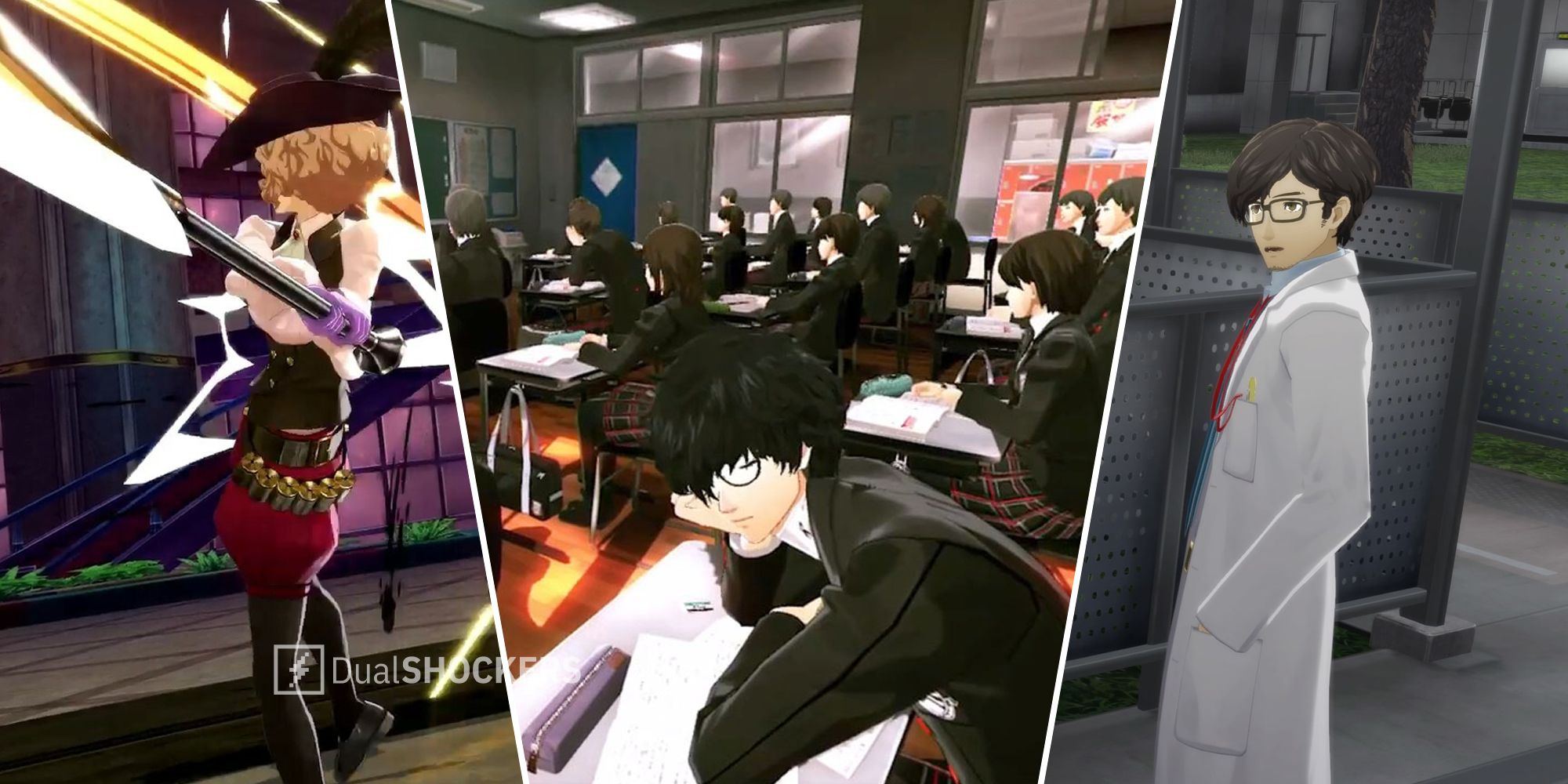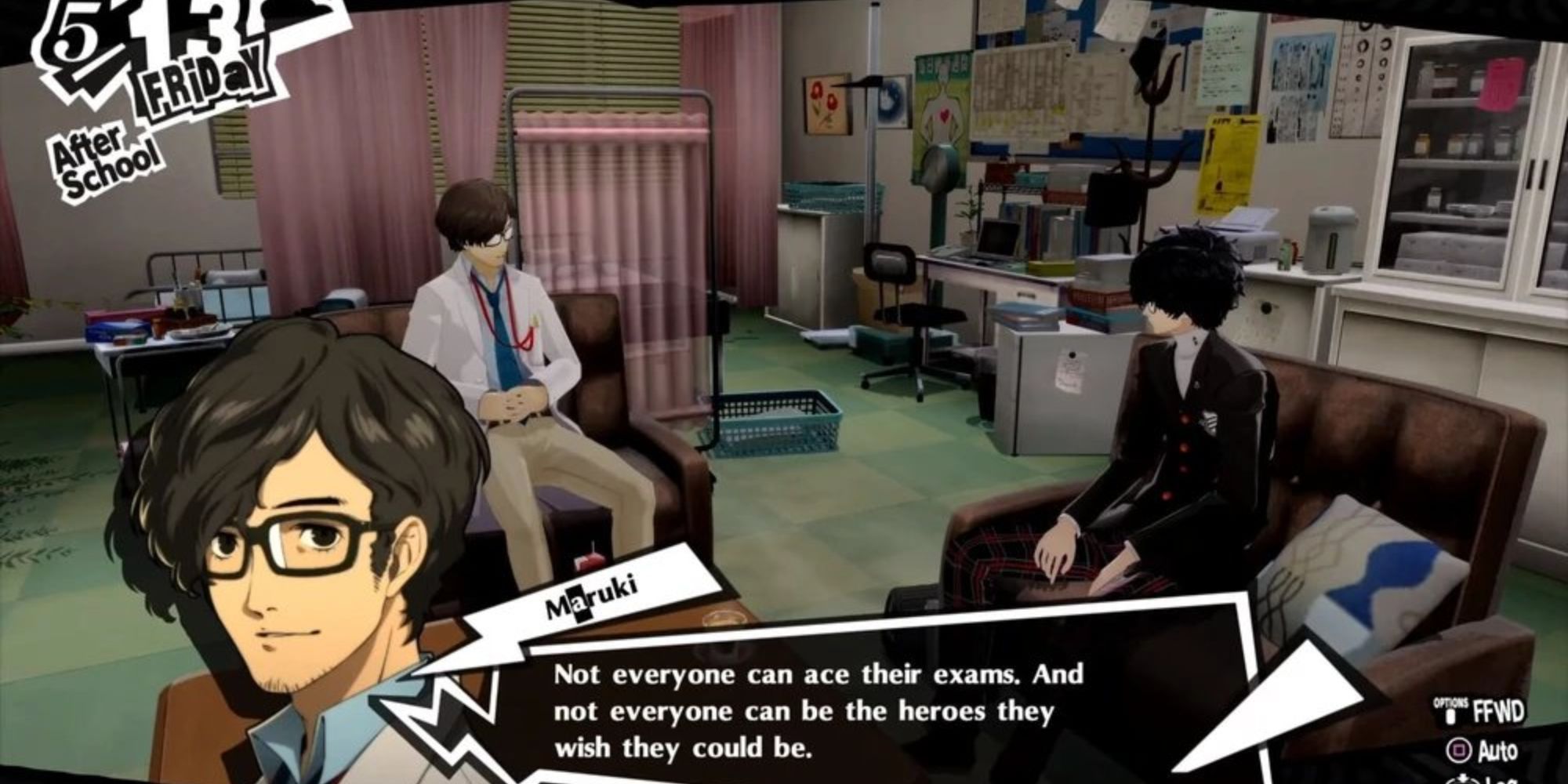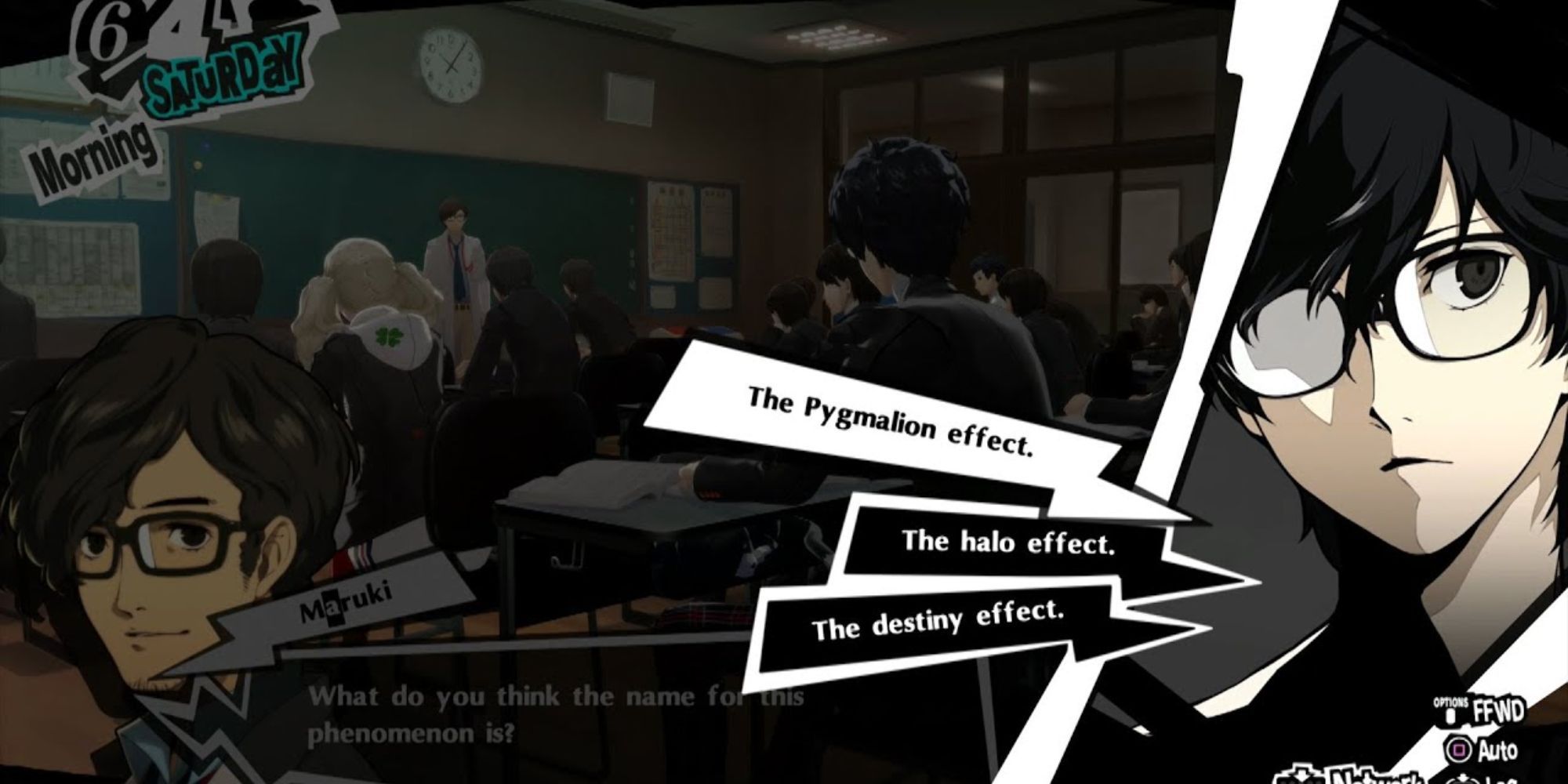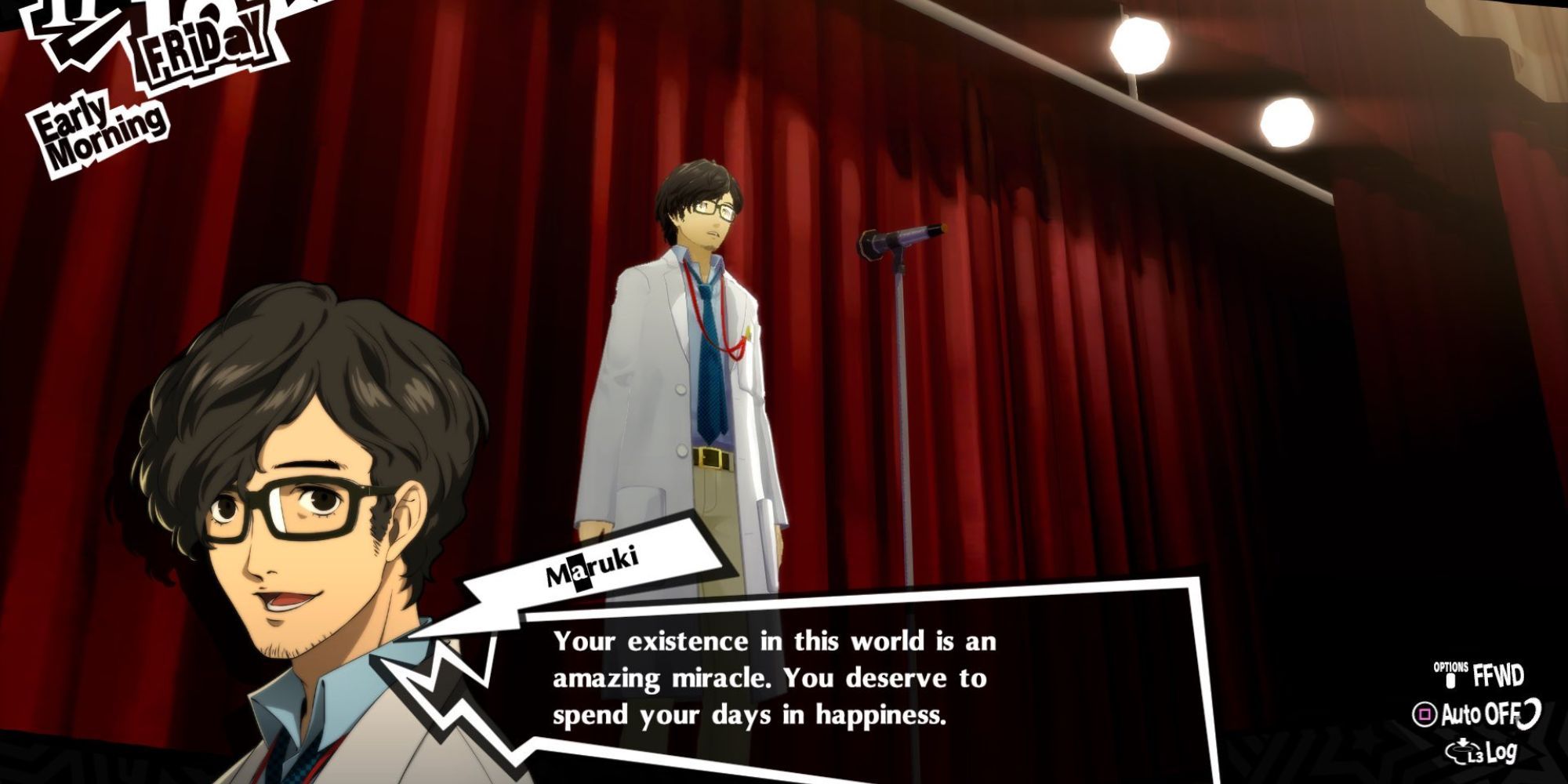Persona’s high school setting, a distinguishing feature of the series since the first entry, has recently become the subject of debate among fans, raising the tricky question of whether this beloved setting may be overstaying its welcome.
The argument goes that sticking to the high school setting might limiting storytelling potential of Persona, and many fans are floating the idea of adopting a more mature college setting, or even abandoning student life altogether for the next Persona entry. I, for one, don't think that would be a great idea, as Persona's central themes of inner exploration and social connection might be greatly diminished, or even lost, in other settings.
The Persona –as defined by Carl Jung– is the mask or 'social face' the individual presents to the world to make a good impression upon others, and conceal their true self. It is born out of a desire to conform with one's surroundings and society, so it acknowledges that external factors play a big part in shaping one’s individuality. These factors become easier to comprehend from the perspective of growing students, in a setting we are all familiar with such as school or a classroom.
Let’s head into the classroom of Persona 5’s Shujin Academy for a moment, shall we?
Inside the classroom, you will find a neat-looking adult teacher wearing a labcoat, explaining obscure stuff that will likely have some players scratching their heads, like the Halo Effect, or Memory Bias. In the eyes of clueless teenagers, his demeanor and the concepts he talks about give him an aura of intelligence and elegance, whereas they are actually flawed and biased impressions composed of various factors inside the classroom.
The teacher, Dr Maruki, is in reality a very clumsy person, bumbling through the trials and tribulations of writing his research thesis, not to mention having hidden ulterior motives of his own, so why is it that no one in class doubts him? As Maruki himself explains, the Halo Effect is the main cause for this, as it is a psychological tendency to have positive impressions about a person or a brand based on unrelated factors and errors in the individual’s perceptions.
The main characters are led to believe Maruki is a righteous person because everyone around them thinks the same, and no one knows any better to think otherwise. Both Maruki and the students are adopting a Persona; the difference is that Maruki is adopting one to hide his true fully developed identity as an adult, while the students are using a Persona to hide their underdeveloped identity –or lack thereof–which is yet to mature into more cohesive, confident form.
It’s easier to relate to the experience of the students, who are all teenagers grappling with unresolved life issues. As students, most, if not all of us, struggled to make sense of our world and who we are. Moreover, facilitating a common perception between people based on their immaturity or lack of knowledge is easier to do in a school setting, and wouldn’t be as viable or effective in any other scenario, like an adult one, for example.
A more mature protagonist would be less swayed by the “Halo” of others, and better able to judge other peoples' character, which would take away so much of Persona's character. In addition, students have limited life experiences. They haven’t yet formed a solid core that allows them to “eliminate the noise” and think clearly for themselves. That dynamic makes for a compelling depiction of the psychological development process, which is so integral to the Persona series.
It is harder to depict this growth in the more complex adult world, where identities are more entrenched and the process of self-awakening is different. The school setting, meanwhile, is fertile ground for establishing a multitude of encounters, as well as exploring how these encounters shape the individual. For example, encounters with the new Royal-only characters Kasumi Yoshizawa and Takuto Maruki never feel out of place, since they are introduced as members of the school. The discussions between them also revolve around growth and finding one's own life path, which are topics commonly discussed in (an admittedly idealised version of) school, unlike work places or arcade centers.
You could argue that the characters in Persona 6 should deal with more mature issues, that it's time for the series to 'grow up,' but the essence of Persona does not lie in the type of issues the characters face, but the complex web of factors that define how they tackle their respective issues. The young recluse Futaba Sakura is a case in point. The Phantom Thieves spend over a month resolving the social anxiety she develops after the traumatic death of her mother by taking her out to do shared activities in various places. Her rehab is handled differently from Kasumi Yoshizawa, who also experiences the death of a loved one, but develops identity issues that require the intervention of a therapist such as Maruki. Neither approach is wrong, as dealing with trauma can take many forms, which is a different experience for each person, regardless of age or circumstances.
A school classroom is just a microcosm of the larger educational sphere that we call society, and people face the same issues in any age or setting, but the intent behind the Persona franchise is to examine how these issues develop in a way that is as relatable to as many people as possible. A school life doesn’t require any prior knowledge from the player, and is relatable to people from practically any background. There also has to be ample room for positive growth, so a dystopian or a bleak setting like the parent Shin Megami Tensei franchise would struggle to serve this purpose.
School life is an indispensable part of what makes Persona great. Each Persona game fully leverages the high school setting that it so lovingly depicts, and so effectively implements, resulting in an elaborate and intricate depiction of psychological growth and the search for the true self. And without it, the upcoming Persona 6 wouldn’t be able to steal our hearts like Persona 5 did.




